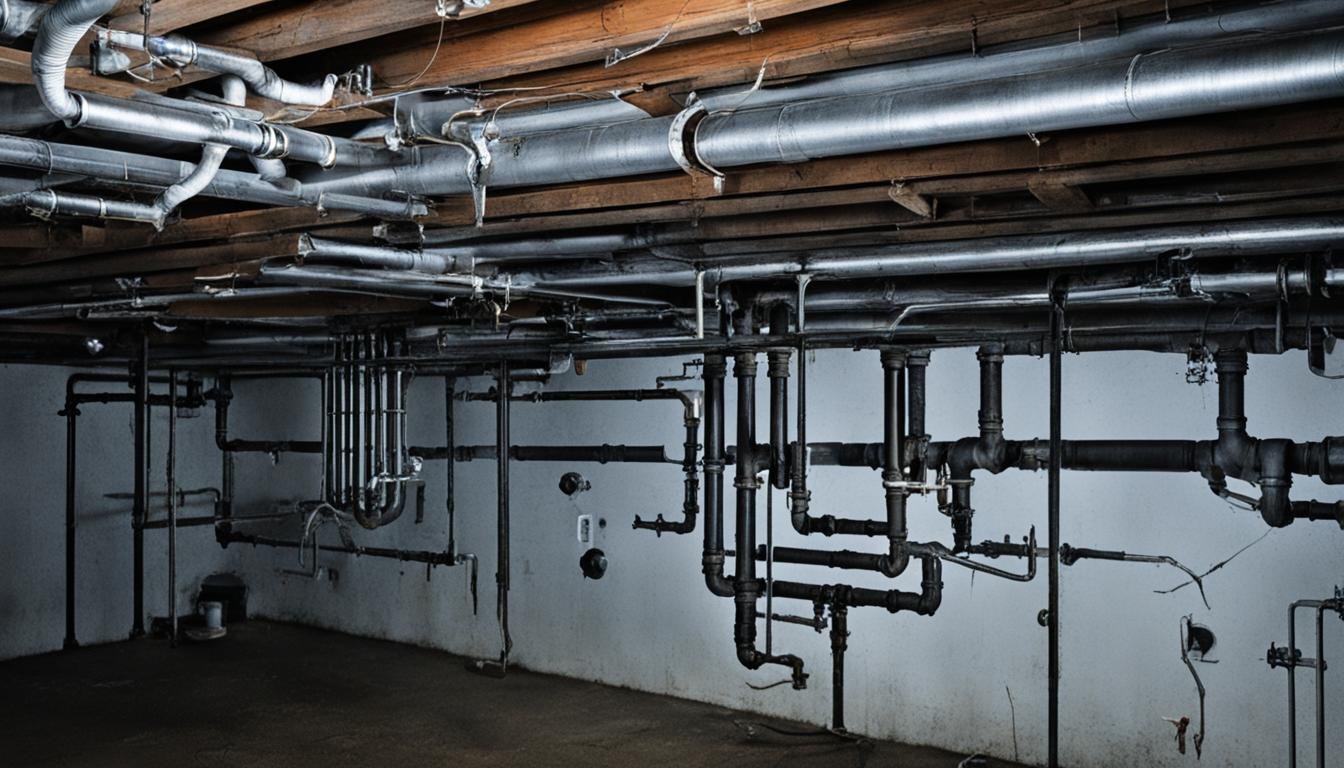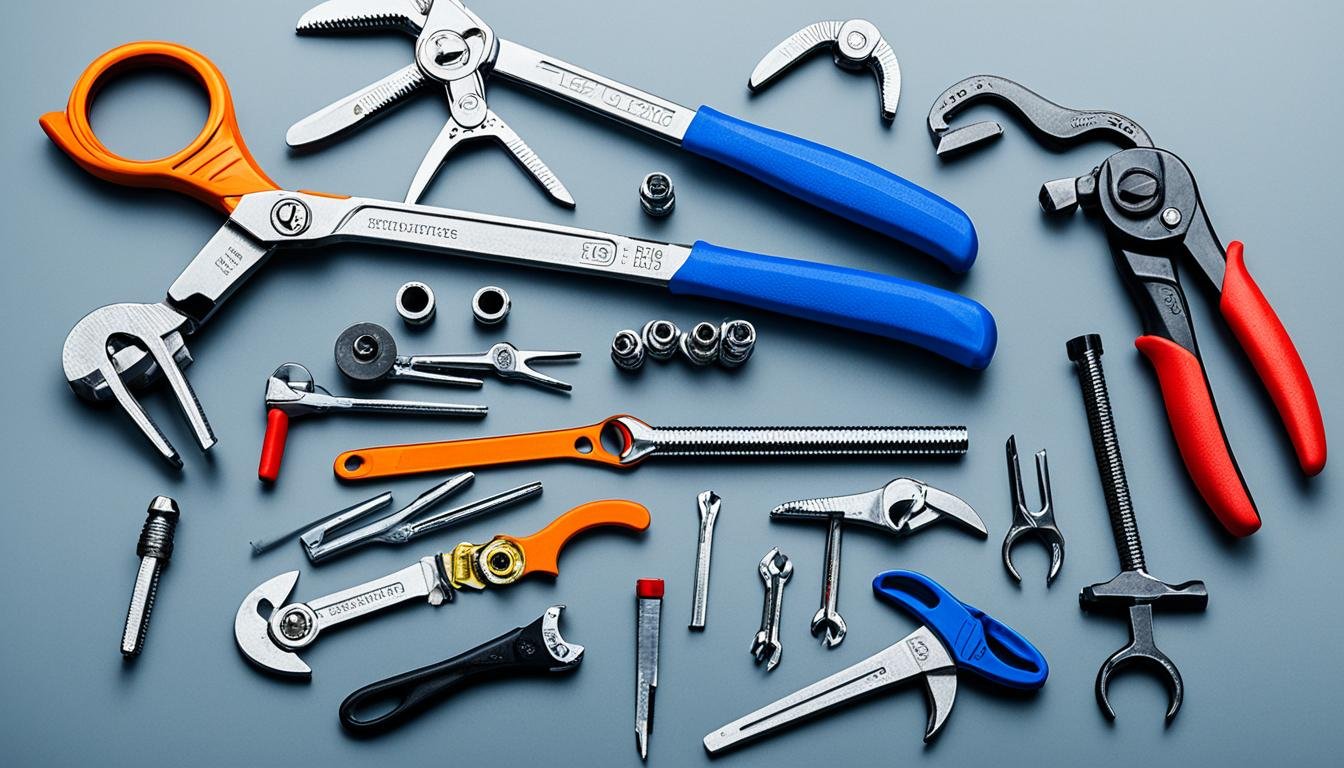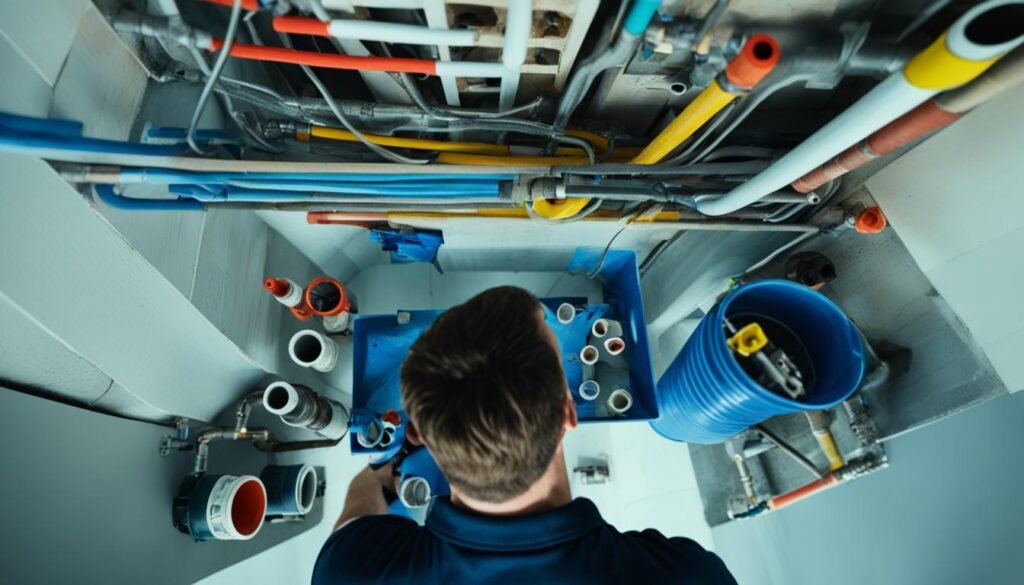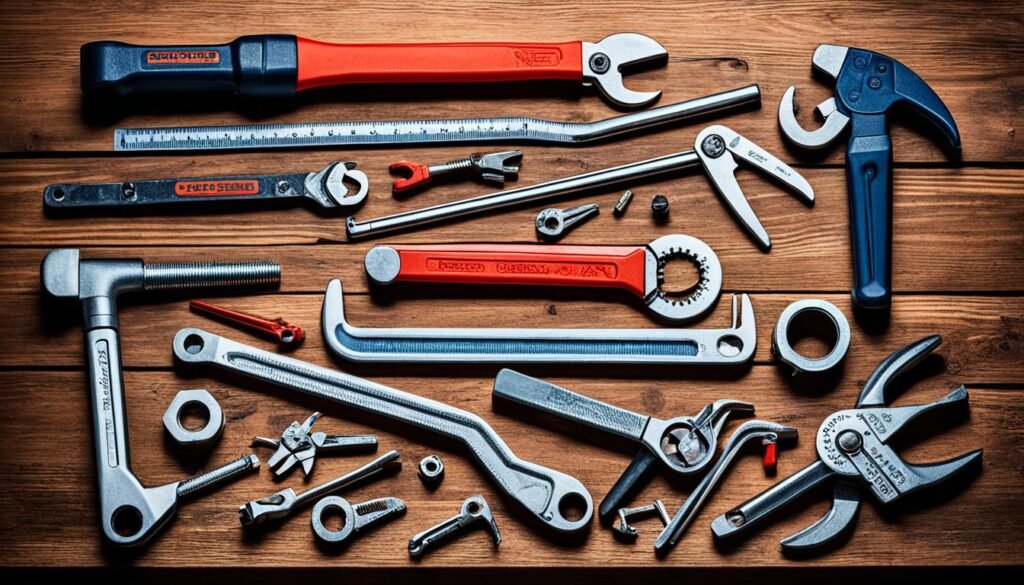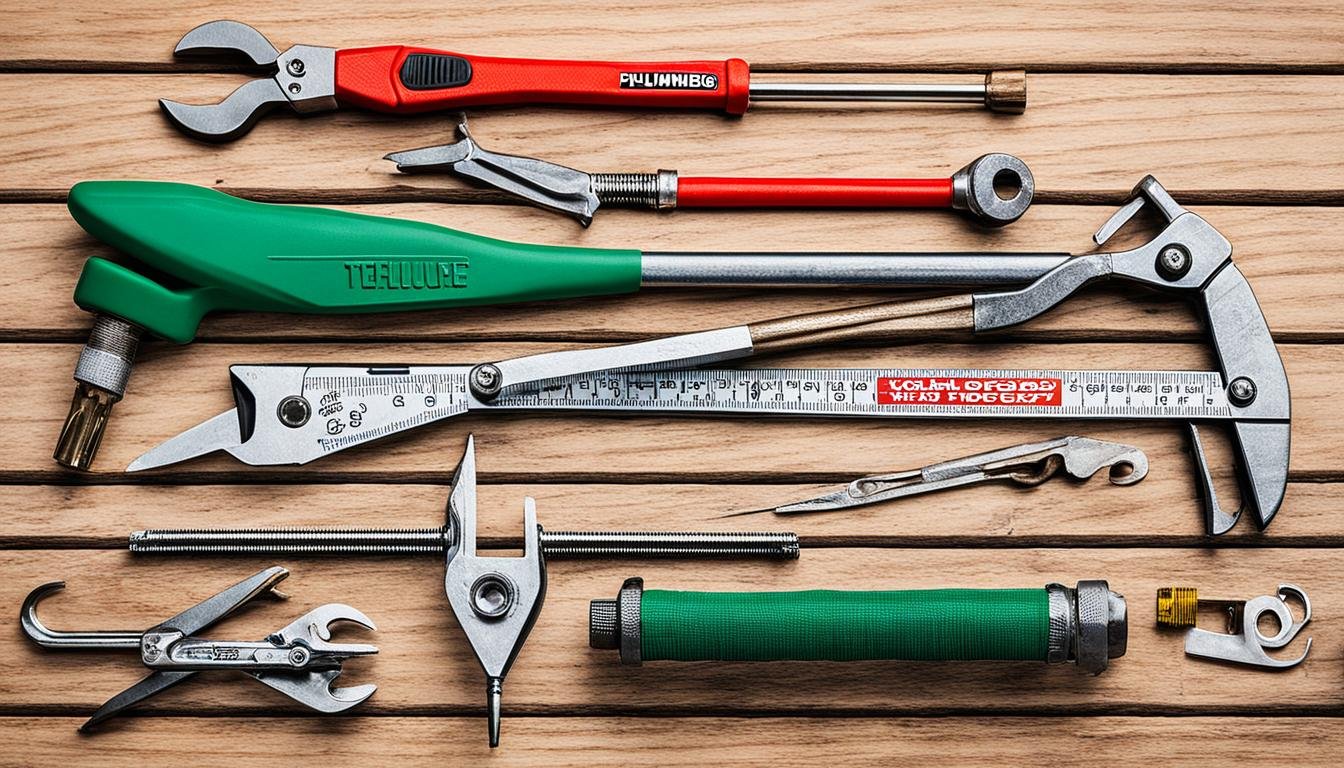Recently, in a big building under construction, only the sprinkler parts on the second floor burst. This finding shows that sometimes plumbing problems happen in just one area. It’s very important to know where a plumbing system is weakest and how to fix those issues before they cause big problems. A building’s plumbing is key to its safety and function. Problems like weak pipes can lead to severe issues, like burst pipes, water damage, and mold – which all cost a lot of money to fix.
Understanding what makes pipes weak and how to keep them from breaking down is vital. Issues like corrosion and cold weather, as well as wrong installation and old equipment, can hurt a plumbing system. It’s important to watch for these problems and deal with them early to avoid a disaster.
Key Takeaways
- Localized issues, such as burst sprinkler joints and heads, can indicate weaknesses in a plumbing system.
- Corrosion is a common cause of weakness in copper piping, with factors like high pH water, biofilms, and incompatible metals contributing to the problem.
- Freezing temperatures can lead to pipe bursts, highlighting the importance of proper insulation, piping materials, and temperature control.
- Visual inspection for signs of corrosion, such as water stains, fungus, and blue/white build-ups, can help identify potential weaknesses early on.
- Regular maintenance, including cleaning, pressure checks, and sediment flushing, can extend the life of a plumbing system.
Common Culprits Behind Weak Plumbing Systems
Your home’s plumbing system needs to be strong and reliable. However, many things can make your plumbing weak. This can cause problems like Plumbing Leaks and Outdated Fixtures. It’s important to know the common causes of these problems. This knowledge helps us prevent and fix them.
Improper Installation
Bad installation can immediately weaken pipes and joints. It can also cause Pipe Corrosion over time. An example is a burst sprinkler system in a new building. The issue was due to a bad install causing joints to break when water froze.
Corrosion
Pipe Corrosion is a big issue, especially in copper pipes. Copper has a natural film that can break down. This happens if water is too hard or by other means like biofilms. Look for white or blue growth on pipes to spot corrosion.
Freezing Temperatures
Many factors can cause Burst Pipes due to freezing. This includes the type and location of pipes. For example, a frost-free spigot burst because it wasn’t heated properly. A theatre’s pipe froze due to bad design, allowing cold air from outside to reach the pipe.
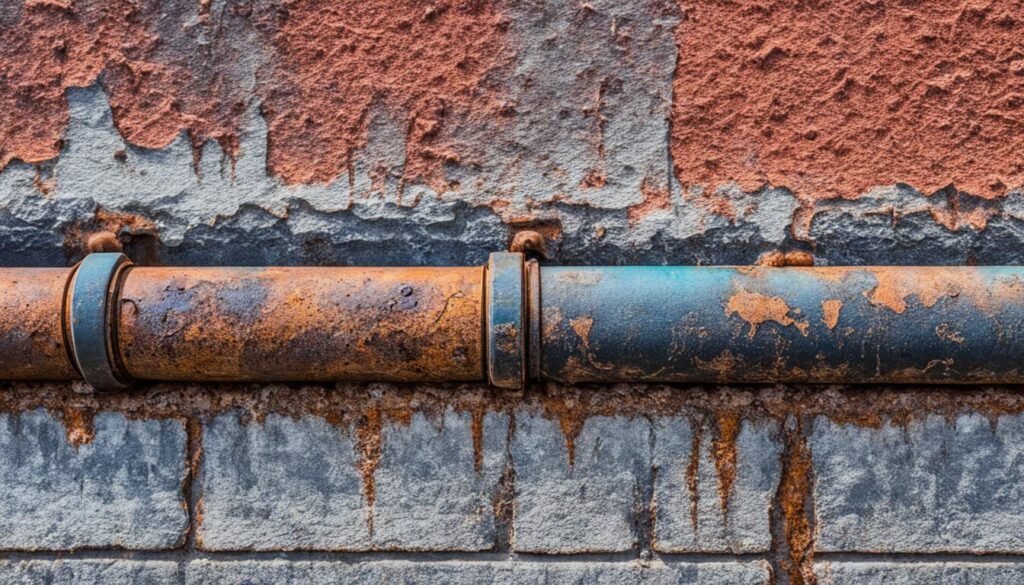
Learning about plumbing weak spots helps homeowners and managers. They can find and fix issues early. This keeps the plumbing strong and reliable for a long time.
Weakest Parts of Plumbing System: Early Detection and Prevention
Looking out for the weakest parts of a plumbing system is vital. It’s all about being on the ball and checking your home’s plumbing often. Spotting issues early can save you a lot of money on repairs. This part will look at how you can easily find and stop plumbing issues.
Visual Inspection
Checking your plumbing system visually can spot early signs of trouble. Keep an eye out for odd pipe colors, discolored water, and low water pressure. These might mean there’s pipe corrosion or clogged drains. Knowing how your plumbing is set up lets you find and fix problems before they become large.
Material Selection
Choosing the right plumbing materials is key for your system’s health. Each type of pipe has its good and bad points. But, picking what suits your home best will lower the odds of plumbing leaks and burst pipes. Careful thought on materials can make the weakest parts of the plumbing system stronger.
Mitigating Environmental Factors
The weather and other natural factors can harm your plumbing. Insulating against freezing temperatures is crucial to avoid burst pipes. Keeping indoor humidity in check also stops pipe corrosion. For certain areas, protecting against harsh soils and damp can need special steps. This involves things like cathodic protection and waterproof barriers.
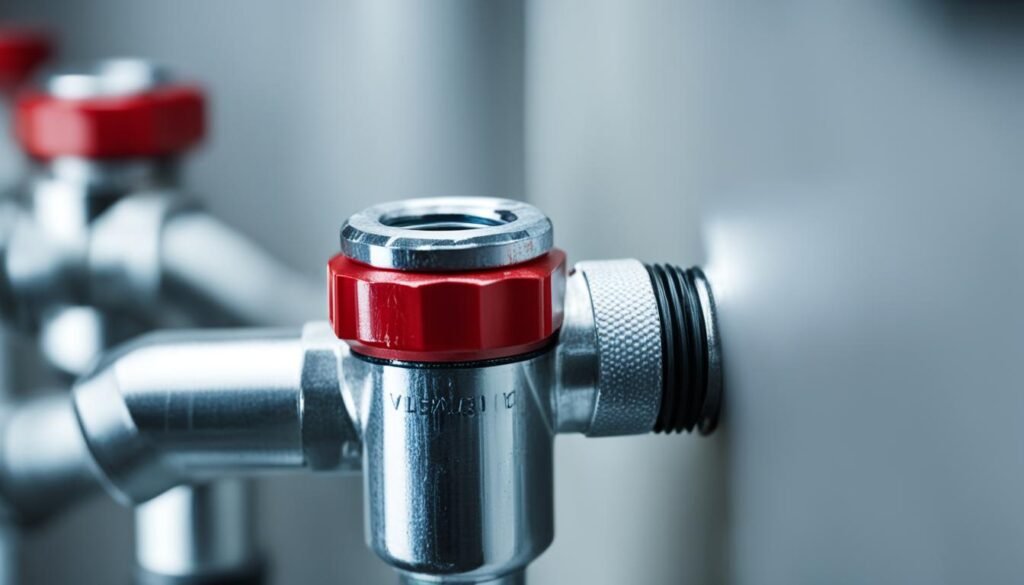
Good home plumbing care means regular checks, choosing materials wisely, and fighting off the environment. Doing these things helps you find and fix the weakest parts of your plumbing. This can help avoid issues like water pressure problems, sewer line trouble, and faulty water heaters. Catching problems early and stopping them is the best way to keep your plumbing in top shape in your dream home.
Technological Solutions and Preventive Maintenance
The weakest parts of plumbing systems require careful attention. Luckily, modern technology has solutions for these problems. Leak detection systems use sensors to check water flow. They find leaks or weak spots long before you see any signs. Some even stop the water if they sense a big leak. This can save you from the trouble of burst pipes or big plumbing leaks.
Preventive maintenance is key to protect plumbing everywhere. Doing things like cleaning, checking pressure, and clearing out sediments helps a lot. This not only keeps your pipes working longer. It also keeps your water safe and tasty. By doing these things regularly, you cut down on the risk of big plumbing problems. You also keep your water clean by removing anything that might make it taste bad.
Leak Detection Systems
Systems with sensors can spot plumbing leaks or weak areas early. They’re smart enough to turn the water off when they find a big leak. This stops burst pipes from causing a lot of damage.
Routine Maintenance
It’s crucial to maintain your plumbing regularly. This means cleaning, pressure checks, and getting rid of sediments. Doing these things reduces the chance of facing major plumbing troubles. It helps avoid clogged drains, water pressure issues, and sewer line problems.
Professional Assistance
DIY plumbing care is helpful. But professional plumbers offer unmatched expertise and experience. They can assess your plumbing fully, suggest top-quality materials, and tackle big issues most owners can’t. While professional help may seem costly at first, it’s worth it. It prevents big disasters like faulty water heaters and bathroom plumbing repairs.
By using tech solutions and keeping up with preventive maintenance, you look after your plumbing’s weakest parts. You ensure your Dream Home Digest stays in top shape. The right approach lets you dodge the usual problems that affect plumbing. You also keep a steady, high-quality water supply at your home.
Conclusion
To keep your plumbing in top shape, anticipate and fix weak spots. This guide has shown you how to spot them early on. This prevents big problems like burst pipes, making your home’s plumbing last longer and work better.
You’ve learned to find and solve plumbing issues like leaks and clogs. You know how to address low water pressure and broken sewer lines too. With the right tech and a focus on preventing problems, you can protect your home from costly damage.
Keeping your plumbing great means staying alert. When you face a big issue, know when to call the pros. With what you’ve learned here, you can handle the toughest parts of your plumbing and keep your dream home safe and comfy.
FAQ
What are the weakest parts of a plumbing system?
The plumbing system’s weak spots are pipes that can rust or get clogged. They also include old fixtures and sudden changes in water pressure. Problems with sewer lines, burst pipes, and broken water heaters are common too.
What causes plumbing leaks?
Plumbing leaks happen for a few reasons. These include bad installation, pipes that get old and corrode, and even when freezing temperatures cause pipes to burst.
How can I detect and prevent pipe corrosion?
To find and stop pipe corrosion, watch out for changes in color or your water. Also, if your water pressure drops, it could be a sign. Doing regular checks and using good materials for your plumbing system can reduce the chance of corrosion.
What can cause clogged drains?
Hair, soap scum, and other debris are often behind clogged drains. To stop this, it’s important to clean your plumbing system regularly and check for any issues.
How can I address water pressure issues in my home?
Issues with water pressure might be from old fixtures, leaks, or problems in the main supply. If you’re having these issues, it’s best to get advice from a professional plumber to fix the problem.
What can cause sewer line problems?
Problems with sewer lines can be due to tree roots, debris blockages, or pipe damage. By checking and maintaining your sewer line often, you can avoid big repairs.
How can I prevent burst pipes?
To avoid burst pipes, protect them from freezing, make sure they are installed well, and watch for signs of wear. This includes keeping your home’s humidity at a safe level.
What are the common issues with water heaters?
If a water heater fails, you might notice water temperature changes, leaks, or it might stop working. To prevent this, keep your water heater in good shape with regular checks and speedy fixes.
How can I address bathroom plumbing repairs?
Fixes in the bathroom can be as simple as unclogging drains or stopping faucet leaks. But they could also be complex issues like sewer line problems. For any bathroom plumbing work, it’s wise to call a professional plumber to ensure it’s done right.
Source Links
- https://forteinvestigations.com/vulnerable-points-in-piping/
- https://www.salisburyut.com/spot-weak-pipes-early-prevent-burst-pipes/
- https://d197for5662m48.cloudfront.net/documents/publicationstatus/120955/preprint_pdf/3588055a6cb5902c9563815fdce620b1.pdf
- https://happyhiller.com/blog/common-plumbing-problems-how-to-fix-them/
- https://chamblissplumbing.com/san-antonio-plumbing/common-plumbing-problems/
- https://www.smithsplumbingservice.com/blog/2023/april/common-causes-of-home-plumbing-leaks/
- https://www.acmeplumbing.com/5-reasons-your-toilet-has-weak-flush/
- https://www.thespruce.com/home-water-pressure-problems-2718730
- https://www.ultratechcement.com/for-homebuilders/home-building-explained-single/descriptive-articles/water-leakage-problems-and-its-solutions
- https://www.sobieskiinc.com/blog/your-buildings-plumbing-needs-preventive-maintenance-too/
- https://blog.service.works/service-business/plumbing-service/preventative-maintenance-checklist-for-plumbing-provide-quality-and-scalable-services/
- https://ehasolutions.com/prevent-plumbing-issues-with-home-plumbing-maintenance/
- https://robertbair.com/blog/plumbing-mold-toxicity
- https://www.nachi.org/plumbing-terms.htm
- https://www.electricsolenoidvalves.com/blog/what-is-the-water-hammer-effect/

